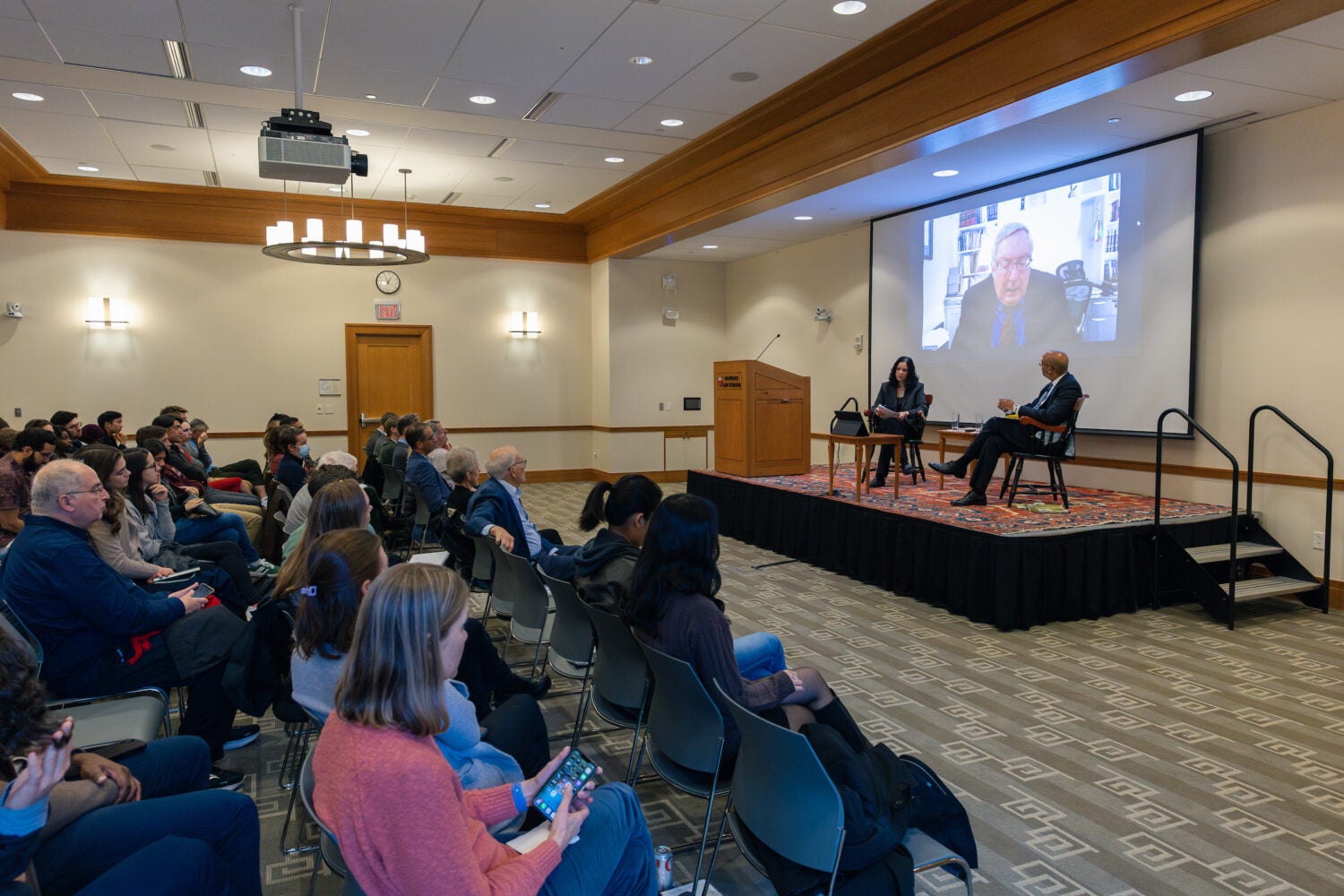Are educational opt-outs for parents of public schoolchildren a boon to religious liberty — or could they throw districts across the United States into chaos?
At the Harvard Law School Rappaport Forum on October 29, experts in constitutional law, education, and religious freedom debated whether a recent U.S. Supreme Court decision involving public school curriculum waivers was correctly decided, and what the opinion could mean for parents and kids, schools, and the future of education.
In Mahmoud v. Taylor, decided last term, the Supreme Court granted an injunction to a group of religious parents seeking to remove their public schoolchildren from instruction related to a set of LGBTQ+ inclusive books. Citing Wisconsin v. Yoder, a seminal religious liberty decision from 1972, the Court’s majority opinion held that not allowing the guardians to opt out of the materials was a violation of their First Amendment right to freely exercise their religion, because it prevented the parents from fully directing the spiritual development of their offspring.
Moderator Laura Weinrib, the Fred N. Fishman Professor of Constitutional Law at Harvard Law School, opened the discussion by acknowledging the thorniness of the issue.
Those in favor of the decision say that it is an “affirmation of parental authority and religious liberty,” she said, while dissenters believe that it will “undermine inclusive education, stigmatize some students, and crucially, prove unadministrable.”
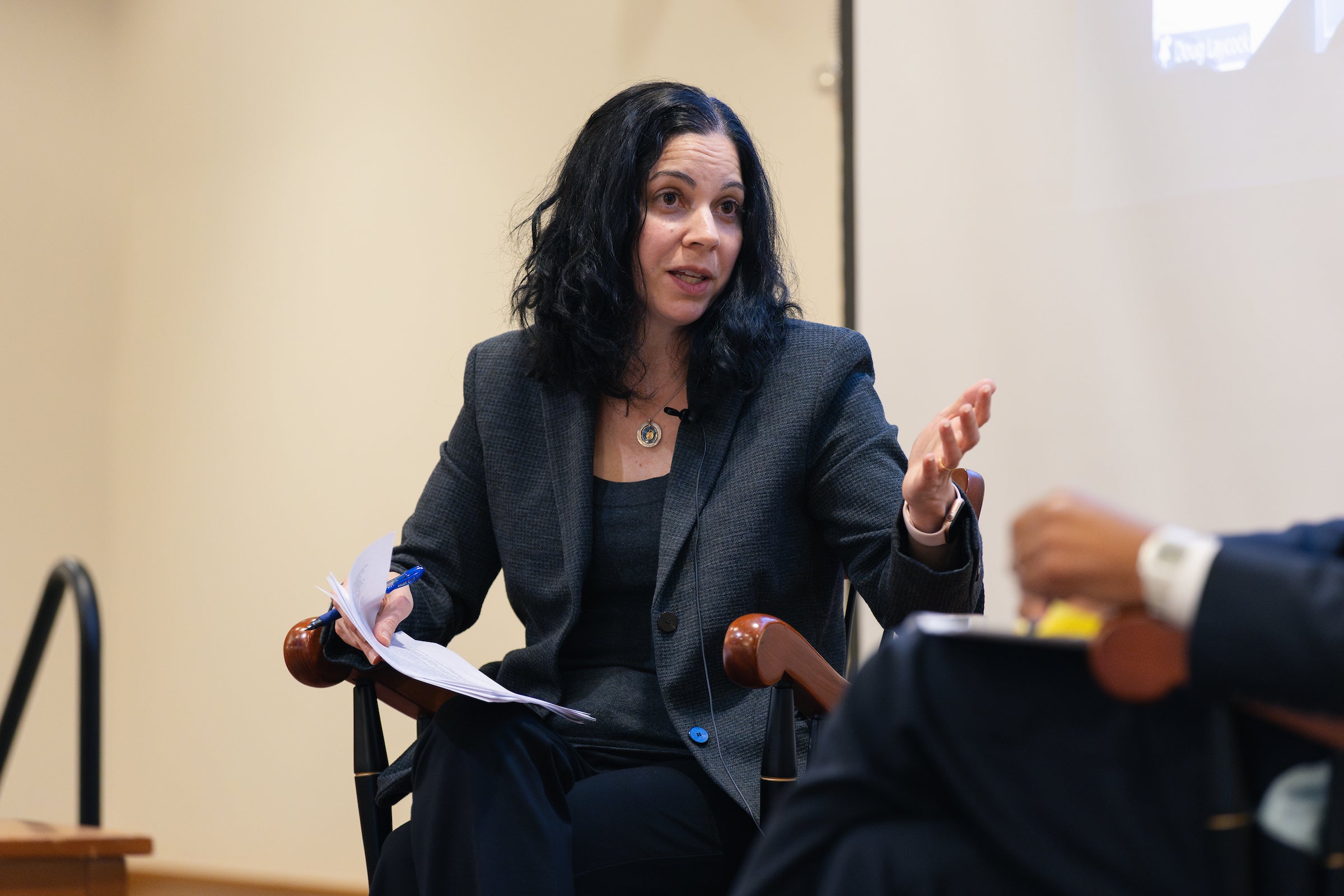
“How do we balance the free exercise rights of parents with the educational mission of public schools in a diverse society?” Weinrib wondered.
“I do not like much of what the current Supreme Court majority does, but I think that they got this one right,” said Douglas Laycock, a professor emeritus at the University of Texas at Austin and University of Virginia, who joined the discussion virtually.
Laycock, a scholar of law and religion, said that he viewed sexual orientation, gender identity, and religious belief and expression alike as “fundamental to human identity.”
“Far too many people on both sides of the culture wars want maximal protection for their side and minimal or zero protection for the folks they disapprove of,” he said. “My view has always been that civil liberties must protect everybody, including both sides.”
“My view has always been that civil liberties must protect everybody, including both sides.”
Douglas Laycock
To Laycock, this includes accommodating religious beliefs in public education, unless the government has a compelling interest not to do so.
Of relevance, Laycock believed, is that the school board in Mahmoud had initially allowed opt-outs before rescinding the option, and that its stated reasons for including the books in the curriculum were related more to societal goals than educational ones. These included, “disrupt[ing] students’ views on sex and gender,” and “ensur[ing] that children from gay and lesbian and trans families were reflected in the curriculum,” he said.
Laycock said he disagreed with one of the key arguments made by those in opposition to the majority’s decision — that mere exposure to the books does not constitute a burden on free exercise.
“That’s one of the arguments that the 19th century Protestants made in disputes over reading the King James Bible in public schools,” Laycock said. “Catholic children who refused to read what they called the ‘Protestant Bible’ were beaten and expelled for refusing to read it. … School officials said Catholic children don’t have to believe it, they only have to read it.”
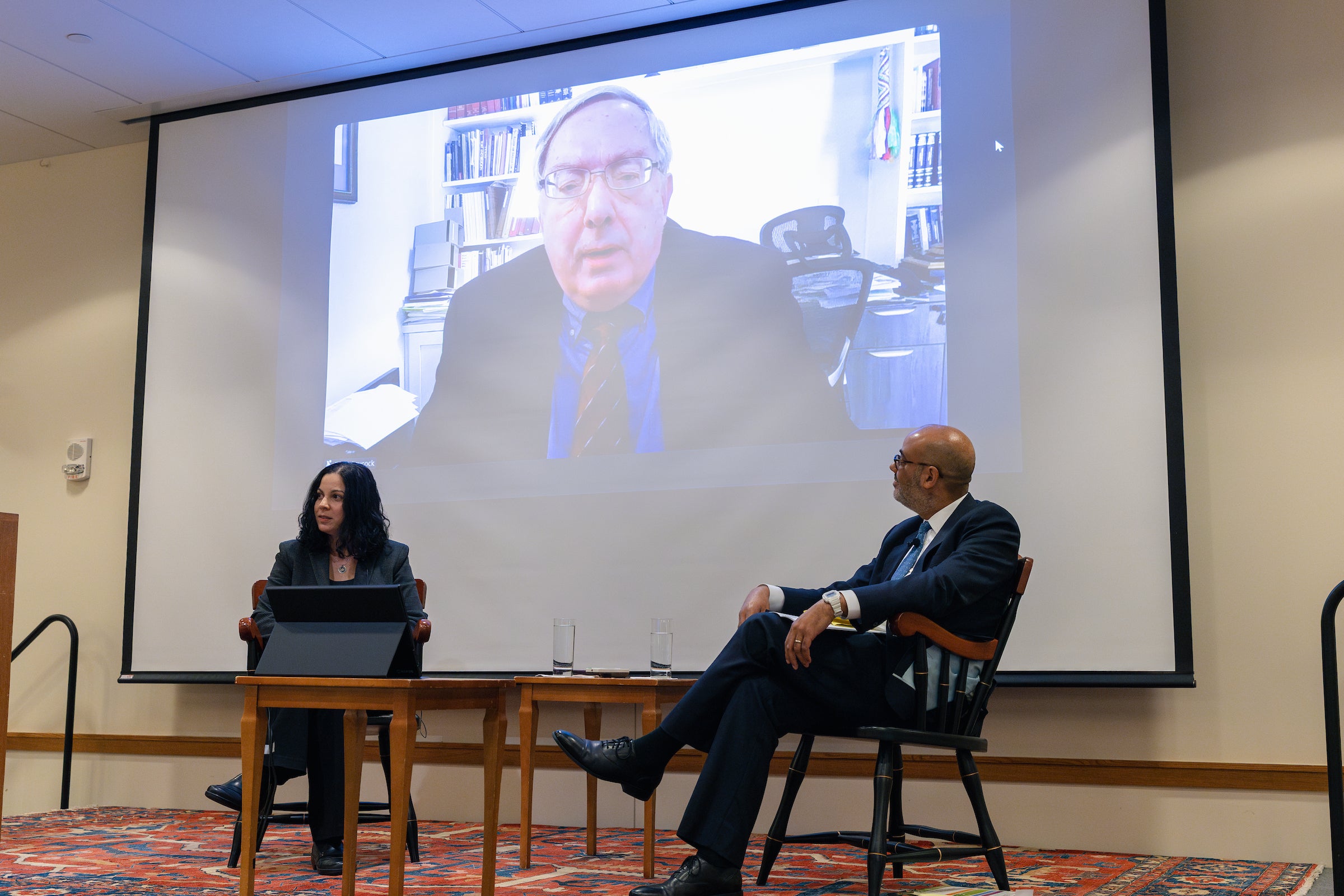
In Mahmoud, he said, the Supreme Court treated the case “as only about exposure, and they said exposure is a burden on the free exercise of religion when it undermines what the parents are trying to teach at home, and if it was not justified by compelling government interest, it is unconstitutional.”
Instead, the case is about a school board that “deliberately set out to undermine core religious teachings of large religious groups, and I think the Court was right to protect the religious minorities,” Laycock said.
Laycock acknowledged that critics also worry that, in the aftermath of Mahmoud, “chaos will ensue,” with schools across the country forced to deal with a barrage of opt-out requests on a variety of topics.
While expressing doubt that it would happen, Laycock nonetheless said that districts could find “manageable bounds” by proving that they have a compelling interest in teaching many of the subjects in question.
For the 40 years before Mahmoud, he concluded, public schools prevailed on this issue, and accordingly, refused to consider “what are those few skills and subject matters that are so important we have a compelling interest in insisting that every child learn them, and what are the things that are less critical that we may permit opt-outs.”
It’s an important question in educational theory, he said. “Mahmoud may require them to finally begin thinking about [it].”
‘An incredibly destabilizing opinion’
To Justin Driver ’04, a professor at Yale Law School, the Mahmoud decision is an “incredibly destabilizing opinion” — one that he predicts will “wreak havoc in the nation’s public schools.”
Driver, an expert in educational and Constitutional law, began by noting that for decades, federal courts have heard similar challenges — and have “repeatedly, uniformly refused to accept that this was a cognizable constitutional claim deserving of an exemption.”
Driver then described some of the materials at the center of these past challenges to demonstrate how he believes such requests could quickly get out of hand. In a Tennessee case from 1989, he noted, parents objected to a series of children’s books co-published by Holt, Rinehart, and Winston which allegedly promoted witchcraft in a story about traveling to Mars. A second story, which described a boy cooking for a girl, he recounted, was seen by its critics as having “undermin[ed] the religious view that there are not sex differentiated roles in American society.”
Another case heard in the Seventh Circuit Court of Appeals involved plaintiffs who rejected stories about wizards and sorcerers, Driver said. “This is a claim that Jack and the Beanstalk is impermissible,” he said. “There are obviously those who believe that Bert and Ernie are gay. Maybe Sesame Street is going to be violative as well. So, I think we’re going to see these sorts of objections in a whole host of different areas.”
Not only will the Mahmoud decision create turmoil in school districts, but Driver also believes that it violates several core conservative principles, including respect for local control.
“This is supposed to be a horrific thought that the Supreme Court is going to be flyspecking individual curricular or disciplinary decisions,” he said. “Here, we have invited the federal courts to get into adjudicating what is going to be permissible.”
In Driver’s view, the Court’s majority also “invite[s] a raft of litigation” that will be extremely fact-dependent, requiring lower courts to delve into “uncomfortable” questions about the legitimacy of religious claimants and claims.
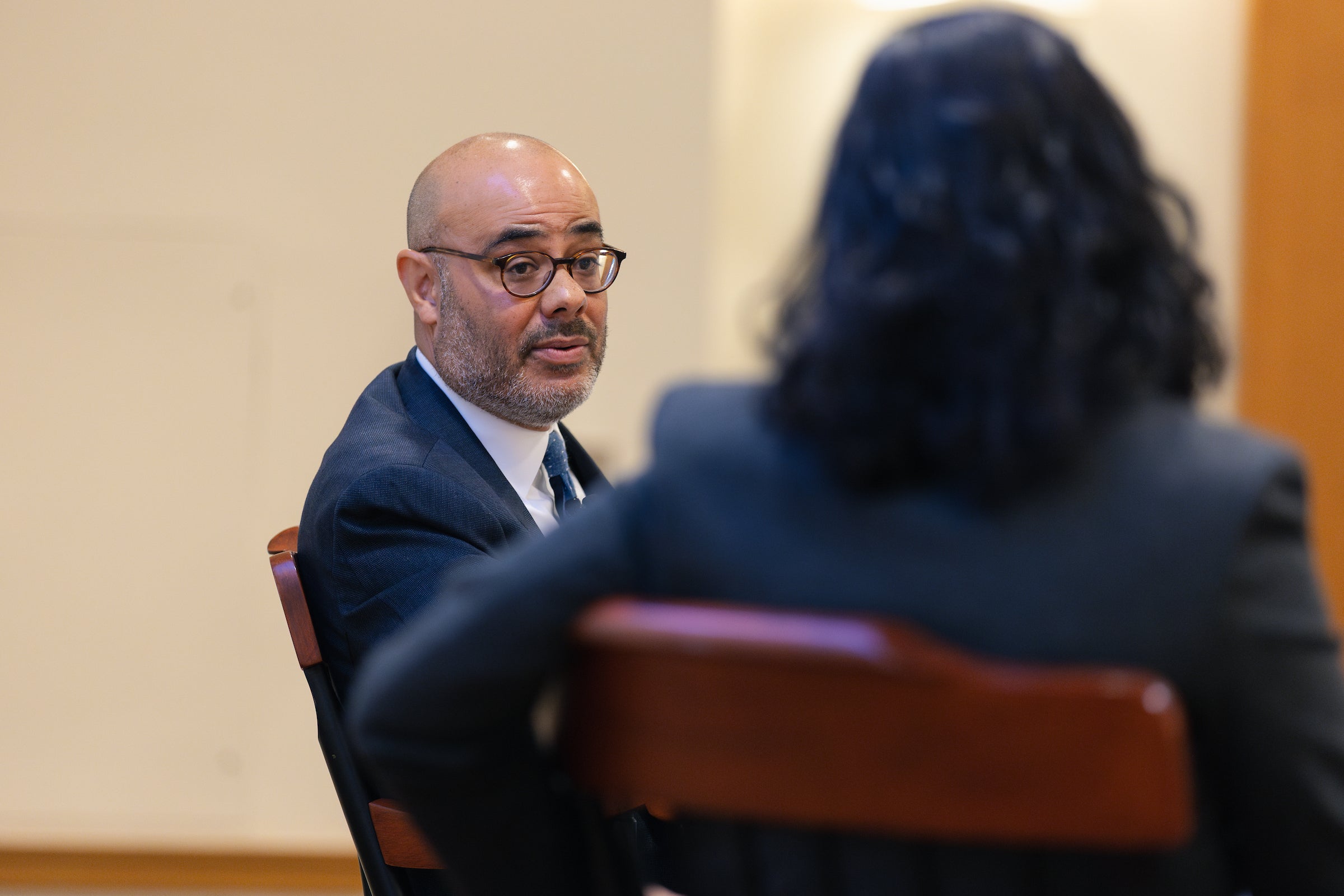
“Conservatives are often, with Justice Scalia, saying, ‘We need rules. The rule of law is a law of rules,’” Driver said. “This case involves the most sort of standard-driven approach that one could possibly imagine.”
And for Driver, “The boundaries of the decision are also unclear.” Could parents, he asked, opt their child out of learning about Harvey Milk — a historic figure who was also a gay man? Must a district, he queried, accommodate a guardian who doesn’t want their child to have a lesbian teacher?
“After all, reading an individual picture book is, in my view, far less of a strong statement about gay equality than having a gay teacher who’s in the classroom every day,” said Driver.
“It seems to me that school districts have a legitimate role to play in shaping young people and encouraging their acceptance of their classmates.”
Justin Driver
What this will likely lead to, Driver said, is self-censorship by school districts, which raises important questions about the chilling of government speech and could result in a lower-quality education. “[Districts] are often going to say, ‘Well, we don’t need these headaches, and therefore the path of least resistance is to simply take these books out of our curriculum altogether.’”
Finally, Driver argued, there is, in fact, an important government interest in talking to children about equality — and not stigmatizing students with differences.
“We regard public schools as engaging in citizen formation,” he said. “It seems to me that school districts have a legitimate role to play in shaping young people and encouraging their acceptance of their classmates.”
The Harvard Law School Rappaport Forum, which is dedicated to vigorous and constructive dialogue on important topics, was launched in 2020 with the support of Jerome “Jerry” Rappaport ’49 M.P.A. ’63 and his wife Phyllis.
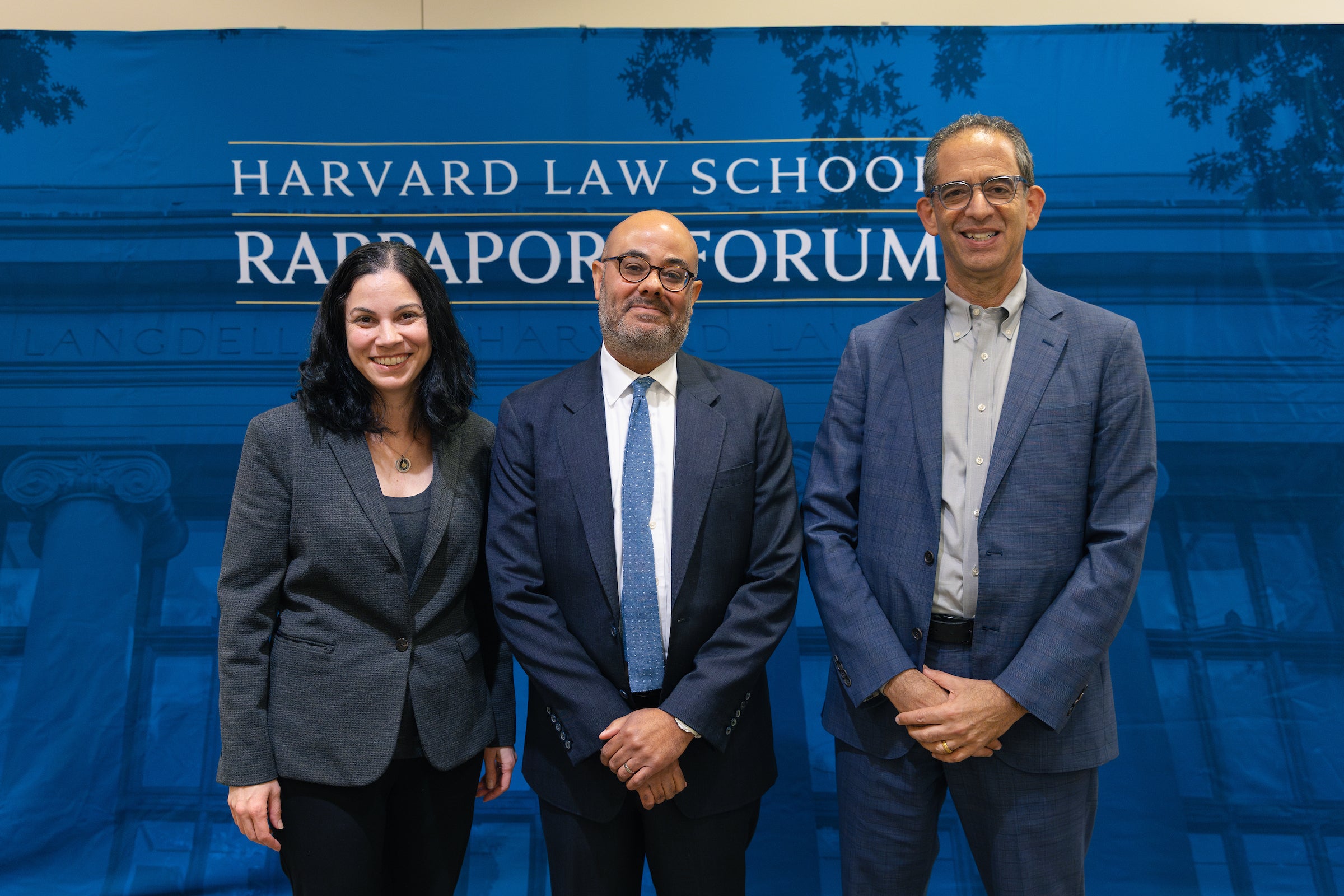
Want to stay up to date with Harvard Law Today? Sign up for our weekly newsletter.
